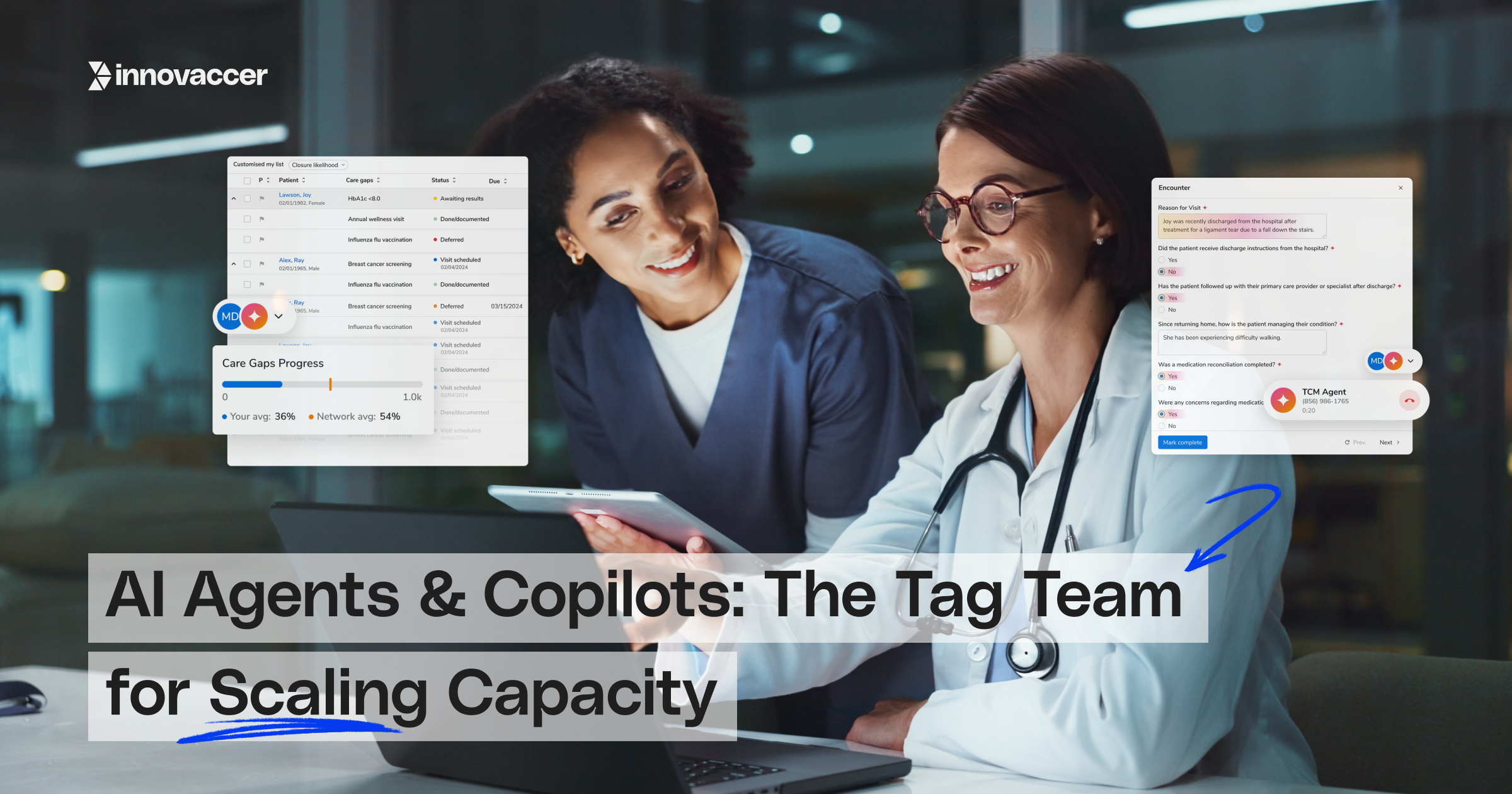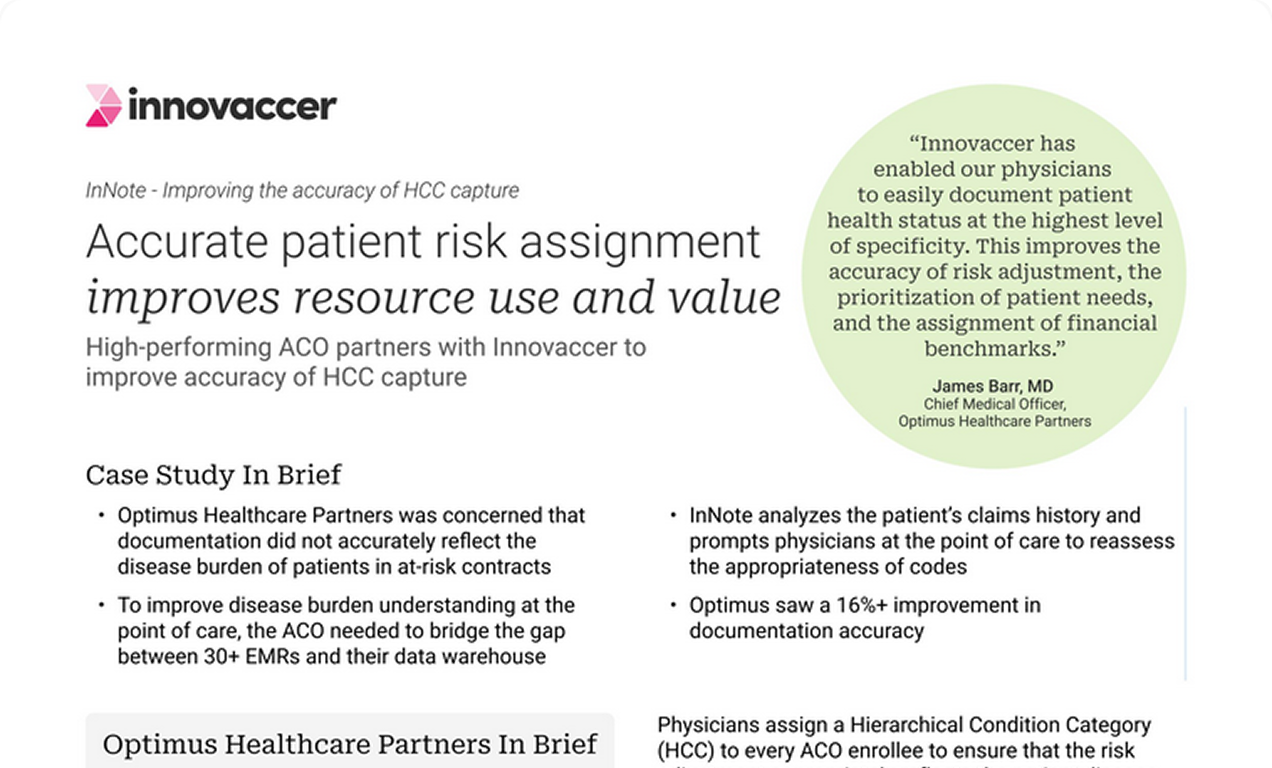AI Agents & Copilots: The Tag Team for Scaling Capacity


The revolution of AI reflects the revolution of the internet, reshaping industries on an unprecedented level. But the debate on AI tends to move between two extremes: whether it will displace jobs, or whether it will improve skills and lead to improved results. In healthcare, things are becoming more apparent. It is clearly changing the way we conceptualize patient care, decision-making, and even the nature of healthcare professionals.
The rationale is simple, healthcare systems have been struggling with staff shortages, increased costs, and increasing patient care needs. Clinical professionals are overworked, resulting in stress, burnout, and increased attrition. Generative AI can assist by streamlining administrative work, analyzing large data sets for insights, and aiding decision-making to alleviate the workload from healthcare.
But that's the thing with AI, it’s evolving every day. Just as the healthcare industry is trying to catch up, new use cases and features are emerging. Now, people are talking about AI Agents and AI Copilots. With each modification to generative AI, it’s essential for organizations to understand their specific needs. But do they truly grasp what each of these technologies does in order to identify what they require? Let’s break it down!
AI Agents and Copilots Have Dedicated Roles
Think of AI copilots as your collaborative assistants. They operate alongside healthcare professionals, allowing them to get tasks done on command. Like helpful colleagues, they offer suggestions, automate documentation, and provide real-time support during patient care.
AI agents, on the other hand, are more like independent workers. When directed, they can handle entire processes on their own, from scheduling appointments to processing insurance claims, with minimal human oversight.
.png)
Copilot as the UI for AI
Satya Nadella at IGNITE 2024 described Copilot as an "organizing layer for work and how work gets done," enabling "every employee to have a personalized assistant that knows them, and their work." This vision drives improvements in productivity, creativity, and time savings and eventually improving business goals.
We see Copilot as the primary way users will interact with AI, rather than navigating separate AI interfaces within each application. It provides a unified experience, making AI-powered tools more accessible and intuitive.
Copilots also connect and manage specialized AI agents that handle specific tasks. This allows users to leverage AI seamlessly without dealing with the complexity of multiple systems, helping them focus on what truly matters.
Imagine asking Siri to book a table at your favorite restaurant. No app. No phone call. Just a simple request.
Behind the scenes, AI Agents get to work. They check availability, call the restaurant if needed, confirm your reservation, and update your calendar. A few moments later, Siri lets you know: "You're all set for dinner at 7 PM!"
Effortless. Seamless. Just the way it should be.
Agents and Copilots Work Independently and In Unison
Almost all of us must already interact with copilot and agent powered by AI in our daily workflows, sometimes without even realizing it.
Consider how AI helps you with your daily work: writing emails, summarizing meetings, creating reports, or retrieving company policies. These AI-powered tools, like Gmail’s Email Copilot or copilots on Notion and Confluence, work alongside you, enhancing your productivity and making tasks effortless. This is your Copilot, an AI assistant working in tandem with you, enhancing your productivity!
Now, let’s look at a more healthcare-related situation. At the hospital, a physician uses AI to create drafts of clinical notes, summarize patient histories, or suggest potential diagnoses. That’s a Copilot, helping the doctor make better decisions, faster.
But what happens when administrative workflows need full automation? Take prior authorization as an example. A physician or their office submits a request for a procedure and then spends valuable time checking its status and following up. AI can simplify this process by handling the routine steps:
- The physician submits a prior authorization request.
- AI reviews insurance policies, patient history, and prior records.
- If the request meets predefined criteria, it is approved automatically.
- If it is complex, AI flags it for human review.
The physician receives a status update without having to follow up manually.
That’s an Agent, an autonomous AI system executing high-volume, rule-based tasks with precision, reducing delays and administrative burden.
AI agents are ideal for handling high-volume, rule-based tasks that do not require human judgment. Humans can make errors but AI agents are nearly perfect at executing tasks with precision, strictly adhering to predefined rules.
Agents and Copilots Both Fit Well In Healthcare
Copilots are capable of taking care of simple on-command tasks. A doctor finishes a patient consultation without worrying about paperwork because an AI copilot transcribes the conversation, extracts key details, and auto-generates notes in real time. Meanwhile, a nurse quickly retrieves a patient’s historical data and profile analysis by asking the copilot, saving time and ensuring accurate decisions.
Now think of holistic operations in a big health system -there are countless tasks that need automation to save time, reduce effort, and deliver faster results. A hospital’s scheduling system runs seamlessly as an AI agent manages appointments, sends reminders, and fills canceled slots automatically. In the back office, another AI agent handles prior authorizations by gathering patient data and responding to insurers, reducing delays and improving efficiency.
.png)
Why is Innovaccer Focusing on Building Agents of CareTM (AI Agents)?
Health systems have often been reactive in implementing AI tools, leading to fragmented, expensive solutions that don’t work cohesively. AI agents solve this challenge by integrating with existing workflows, reducing data silos, eliminating duplication of efforts, and enhancing collaboration. Rather than scattered point solutions, AI agents work within a unified platform, thereby streamlining operations, lowering costs, and amplifying the impact of healthcare professionals as true task multipliers.
We’ve built AI copilots for care managers, physicians, and access centers to reduce administrative work and give them more time to focus on patient care.
Healthcare organizations are facing growing staff shortages and increasing pressure to improve efficiency. They need to cut costs, streamline operations, and enhance the patient experience, all while working with limited resources. Managing these demands isn’t easy, and the expectation to do more with less continues to grow.
That’s where Agents of Care™ come in. They take on high-volume, repetitive tasks, ensuring operations run smoothly at all times. By automating workflows, they help healthcare teams stay efficient without adding complexity to existing systems.
By integrating AI agents into healthcare operations, healthcare organizations can:
- Increase staff productivity – Automate time-consuming administrative workflows, freeing up teams for higher-value tasks.
- Lower cost of care – Minimize manual inefficiencies, reducing overhead and operational expenses.
- Accelerate task execution – Process requests in real time, eliminating delays and bottlenecks.
- Enhance patient satisfaction – Deliver round-the-clock support without additional staffing needs.
- Reduce administrative burden – Offload routine, low-value tasks, allowing teams to focus on clinical priorities.
- Improve accuracy in routine workflows – Reduce errors associated with manual data entry and administrative processes.
.png)
Know more about how Agents of CareTM can help your healthcare organization. Want to speak to an expert? Book a demo here!


.png)






.avif)









.svg)
.svg)

.svg)

